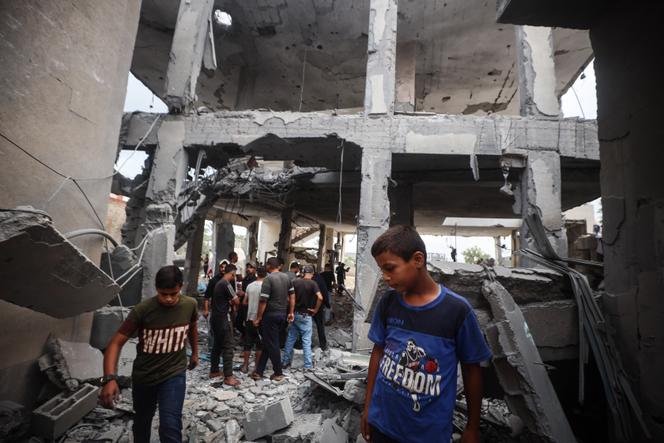


In the last days of September, the Israeli army bombed a Hamas base and mosque in a refugee camp in the middle of Gaza. This strike, one of thousands, did not attract attention from the enclave's inhabitants. The buildings were empty and only two passers-by were killed. Once the shockwaves had passed, the neighbors quietly told one other that they felt much better without this Hamas base.
"For a year, I'd been dreading the day a bomb would fall on us because of them. Our living room was blown out. A large piece of debris grazed my daughter's head and almost killed her, but now I'm breathing easier" said Khalil, a neighbor speaking animatedly by telephone. As a father, he insisted on remaining anonymous for fear of reprisals from the Islamist movement.
Fearing the bombing at the start of the war, Khalil left his home. In poor health, he wandered for months between various shelters – thinking he might lose his mind – and then chose to take the risk of returning home. "We told ourselves that the Israelis were sparing those premises because they had an informer inside. Just the day before, Hamas was distributing meat there," Khalil said. "We were shocked because most people can no longer afford to buy it. Hamas prefers to feed its own rather than give it to the poorest, who are struggling to survive on humanitarian aid rations."
After a year of war, Khalil's anonymous criticisms are commonplace in Gaza. They circulate widely on social media, where Hamas is referenced by unmistakable euphemisms: "My enemy" or "my disease." On the streets and in the markets, some even go so far as loudly blaming the movement's political leaders. "I thought they were going to liberate us on October 7, 2023, I was happy!" recalled Obaida Shamali, a youth of 18, also speaking by phone, with Israel having banned the foreign press from visiting Gaza. Obaida has since lost his two closest friends.
Displaced to central Gaza, he is struggling to support his mother and three younger siblings. "Our dreams have vanished," he said. "We realized that Hamas didn't think about protecting civilians when they planned their operation, and now we're living through a new Nakba because of them" – a reference to the "catastrophe" that accompanied the birth of Israel in 1948 and led to the forced exodus of some 700,000 people.
These criticisms are not aimed at Hamas's ongoing resistance to the Israeli invasion, where brigades affiliated with all Palestinian factions are contributing. They do not seem to have dented the convictions of Hamas, which enjoys great popularity in the West Bank and among Palestinians in exile. In August, the party's political bureau seemed to take for granted the appointment of Yahya Sinwar – master of Gaza and architect of the October 7 attacks – as its new leader, following the assassination of Ismail Haniyeh by Israel during a strike in Iran.
You have 60.33% of this article left to read. The rest is for subscribers only.
